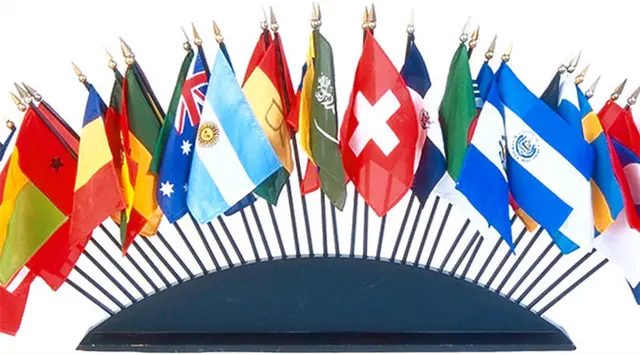The international community continued to criticize a nuclear test conducted by the Democratic People's Republic of Korea (DPRK) on Wednesday while doubts still remain on the country's claim of a hydrogen bomb.
The UN Security Council on Wednesday "strongly" condemned the nuclear test of Democratic People's Republic of Korea (DPRK) after the Council convened an emergency closed-door meeting on the DPRK.
The members of the Security Council recalled their previous determination to take "further significant measures" in the event of another DPRK nuclear test, according to a press statement.
The statement said "in line with this commitment and the gravity of this violation, the members of the Security Council will begin to work immediately on such measures in a new Security Council resolution."
NATO Secretary-General Jens Stoltenberg said Wednesday that the nuclear test undermines regional and international security and is in clear breach of UN Security Council resolutions.
"I condemn the continued development by North Korea (DPRK) of nuclear weapons and ballistic missile programs and its inflammatory and threatening rhetoric," said NATO chief.
Stoltenberg called on the DPRK to fully respect its international obligations and commitments. "North Korea (DPRK) should abandon nuclear weapons and existing nuclear and ballistic missile programs in a complete, verifiable and irreversible manner, and engage in credible and authentic talks on denuclearization," he added.
The German government on Wednesday condemned the nuclear test "in the strongest terms."
"North Korea (DPRK)'s nuclear program and repeated nuclear tests are serious threats to peace and stability on the Korean Peninsula as well as an attack on the global regime of non-proliferation," said German Foreign Minister Frank-Walter Steinmeier in a statement.
The German government urged the DPRK to behave according to the resolutions of the UN Security Council and return to the negotiating table.
Norwegian Foreign Minister Borge Brende called the DPRK's nuclear test "a serious threat to global security and should be condemned strongly."
The nuclear test violates non-proliferation agreements and UN Security Council resolutions, Brende told NTB news agency.
The Czech Republic also criticized the nuclear test, saying it was a highly irresponsible and regrettable act that seriously threatens stability and peace not only on the Korean Peninsula, but also in the whole region.
Portuguese Foreign Minister Augusto Santos Silva condemned the nuclear test, saying he hoped the UN Security Council decides "measures that could deter this type of behavior."
Meanwhile, Belarus urged the DPRK to "guarantee the meticulous fulfillment of UN Security Council resolutions and to abstain from actions that can lead to escalation," according to a statement by the Foreign Ministry.
Wednesday's test, if confirmed, is the fourth nuclear test conducted by the DPRK. The previous three were carried out in 2006, 2009 and 2013 respectively.
The nuclear test has pushed further away any viable solution of the Korean Peninsula predicament and thrusted more uncertainty into regional stability.
Analysts believe that turning Northeast Asia into a keg of powder benefits none in the neighborhood, even the DPRK itself, which has pledged to promote economic development. On the other hand, the DPRK's defiance was deeply rooted in its strong sense of insecurity after years of hostility with the United States, whose pivot to Asia appears much like a show of muscles.
A H-bomb test?
Pyongyang announced Wednesday that the test "proved the technological specifications of the newly developed H-bomb were accurate and scientifically verified the power of smaller H-bomb," according to the statement by the official KCNA news agency.
However, the White House said initial analysis indicates that the DPRK's nuclear test is "not consistent" with a hydrogen bomb.
Nothing occurred in the last 24 hours has changed the U.S. assessment of the DPRK's technical and military capabilities, White House spokesman Josh Earnest told a regular briefing Wednesday.
Earnest said intelligence agencies are continuing to gather evidence to determine the nature of the test.
 简体中文
简体中文

